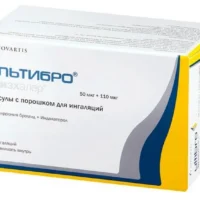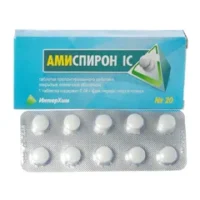Description
Singlon (Montelukast) Coated Tablets 10 mg. №28
Ingredients
- Active ingredient: Montelukast Sodium 10 mg.
- Other ingredients: Lactose monohydrate, microcrystalline cellulose, croscarmellose sodium, hydroxypropyl cellulose, magnesium stearate.
Dosage
- Adults and children over 15 years: 10 mg once daily in the evening.
- Children 6-14 years: 5 mg once daily in the evening.
Indications
Singlon (Montelukast) coated tablets are indicated for the prophylaxis and chronic treatment of asthma in adults and pediatric patients.
Contraindications
Do not use Singlon (Montelukast) coated tablets if you are allergic to montelukast or any other ingredients in the product.
Directions
Take Singlon (Montelukast) coated tablets orally with or without food as directed by your healthcare provider.
Scientific Evidence
Montelukast, the active ingredient in Singlon tablets, is a leukotriene receptor antagonist that works by blocking substances in the body that cause inflammation and constriction of airways. Studies have shown that montelukast is effective in improving asthma symptoms, reducing the frequency of asthma attacks, and improving lung function.
Additional Information
It is important to note that Singlon (Montelukast) coated tablets should not be used for the treatment of acute asthma attacks. Always follow your healthcare provider’s instructions for proper medication use and dosage.
Pharmacological Effects and Clinical Trials
Montelukast exerts its pharmacological action by selectively antagonizing leukotriene receptors, thereby inhibiting the physiological actions of leukotrienes in asthma. Clinical trials have demonstrated the efficacy of montelukast in improving lung function, reducing asthma symptoms, and decreasing the need for rescue medications compared to a placebo.
In a study published in the Journal of Allergy and Clinical Immunology, montelukast was found to be as effective as inhaled corticosteroids in improving asthma control and quality of life in patients with mild to moderate asthma. This highlights the importance of montelukast in the management of asthma, especially in patients who may have difficulty using inhalers.




